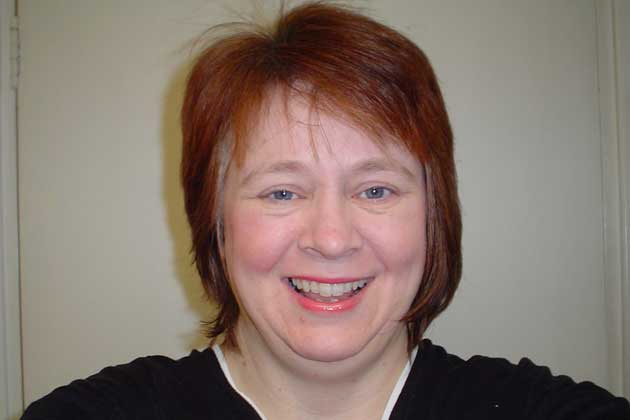Wealth Check: 'I want to pay off my debts, train as a healer – and go on holidays'

Linda Rostron, 44, works at the Houses of Parliament as a computer operator. Over the years she has built up a number of debts and wants to clear these, without giving up all her luxuries. Linda eventually hopes to train as an alternative therapist to boost her income but is finding training courses prohibitively expensive.
"I want to manage my personal debt while still being able to enjoy holidays. I also want to fund training to become a self-employed healer." In time Linda may also become a full-time carer to her elderly mother.
Case notes
Salary: Linda earns £24,000 a year as a computer systems operator.
Monthly outgoings: £850 on rent, bills, food and essentials, £30 on holidays, £30 to charity.
Debt: Linda owes £24,000-£25,000 on personal loan and credit card debts.
Savings and investments: Linda saves £60 a month. She has £400 in an ISA, £100 in a saver account, £100 with NS&I and £200 worth of Premium Bonds.
Advice this week is given by independent financial advisers Danny Cox of Hargreaves Lansdown, Adrian Lowcock of BestInvest and David Brunning of Brunning Newman Houghton...
Clearing debt
All three experts agree that before Linda can seriously think about saving or training courses she must clear her debts.
Lowcock says Linda should review her debts with her bank manager as low- or interest-free rates will be coming to an end. David Brunning agrees and says the credit card debts will be particularly expensive.
"Interest rates are going up. Linda needs to seek advice on whether she can get lower interest rates on some or all of her loans. She has been switching her credit cards around to chase the 0 per cent interest rates, which is good, but offers like this are drying up," Brunning says.
Cox notes that Linda is only making the minimum monthly payments on her credit card debts. He says: "This means almost all the money she repays a month is wasted on interest".
Brunning advises Linda to review her non-essential monthly outgoings.
"Could the £360 she gives to charity each year be better put towards repaying her debts? It's not popular, but tough times call for tough choices. Linda needs to prioritise what she needs to spend on debt repayment," Brunning says.
Get a free fractional share worth up to £100.
Capital at risk.
Terms and conditions apply.
ADVERTISEMENT
Get a free fractional share worth up to £100.
Capital at risk.
Terms and conditions apply.
ADVERTISEMENT
He adds that Linda is paying payment protection premiums on some of her credit cards, which is likely to be the most expensive way of obtaining protection. "Check the terms, and then look around the market or take independent advice. Payment protection can be valuable, but make sure you are getting value for money," Brunning says.
Lowcock adds that, as a single person with no dependants, the life assurance Linda is paying to cover her loans is unnecessary. Brunning agrees: "Concentrate on repaying the debt, not buying additional life assurance."
Investment
Cox says Linda needs to use the money she is saving to pay off her credit card debt. Lowcock says it is good Linda has savings accounts to fund her holidays but advises she move more of her spare monthly money to her ISA. "A monthly standing order would be a good way to do this," he says. Brunning says: "Linda needs to build up and set aside at least three months' household spending as an emergency reserve. Having money to meet three months' worth of bills could provide a lot of security. A cash ISA would be ideal for this."
Pension
Linda hopes to retire at 60. She has a Civil Service final salary pension scheme which Cox says is "one of the best" available. He adds: "Therefore, she does not need to worry about pensions and retirement planning for now."
Career change
Linda wants to fund a training course to become an alternative therapist but cannot afford the expensive fees.
Brunning says that setting aside money for expensive professional training will not help the more pressing concern of Linda's debt repayment.
He advises her to train through evening classes, which would be cheaper but still effective. "She could also contact healers already practising to see if any would offer training in exchange for her IT skills," Brunning says.
Lowcock says Linda should seek assistance from the Citizens Advice Bureau and look into the government-run New Deal 25 plus for people over 25 who want to train.
"Linda should also speak to her bank about a business loan, however she will need a detailed business plan for them to approve any loan as they do see these as high risk," Lowcock says.
For a free financial check-up, write to Wealth Check, The Independent, 191 Marsh Wall, London E14 9RS; or email wealthcheck@ independent.co.uk
Join our commenting forum
Join thought-provoking conversations, follow other Independent readers and see their replies
Comments
Bookmark popover
Removed from bookmarks